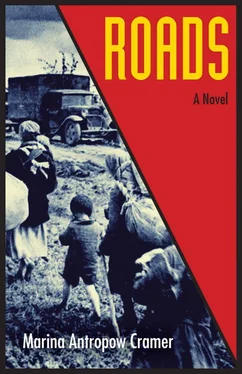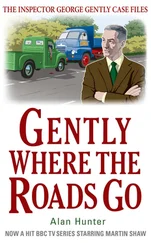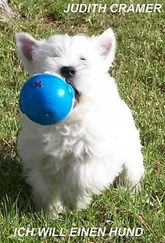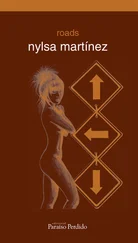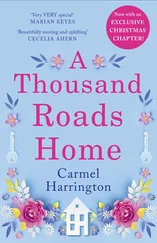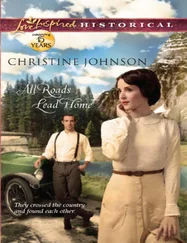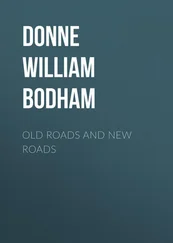Ilya spent his days clerking at the government procurement office in the harbor. Seeing a ship come in was entirely routine, requiring a flurry of paperwork that had long ago blunted for him the novelty or excitement of any arrival. Saturdays were spent outdoors in one of the city’s parks, or down by the quay, offering his work for sale, making up wire mementos on the spot for those who had money to buy them. These were mostly Party members on holiday, or traveling artists—film and theater actors, circus performers, members of opera companies or ballet troupes, who enjoyed more travel privileges than the average Soviet citizen.
Galina loved these weekend outings with her father. School was interesting, but she did not share, or understand, her friend Filip’s thirst for knowledge. She could see the value of knowing how to read, and learning arithmetic seemed practical enough, but in the end school was something you had to do until you were old enough to step into the stream of life.
Her brother Maksim was the studious one. Already, at thirteen, he talked about medical school. Galina was convinced that he spent hours at the library at least in part to avoid the household duties that fell, more and more, to her hands. But he was a boy, and the only son; more was expected of him. Her own reality of daily tasks was brightened by the singing that started and ended each school day, and by the time she spent with her father outdoors, away from their crowded rooms and the unavoidable intrusions of other people’s family dramas.
Family drama was common fare in the tenement, where every argument floated out into the open courtyard, unrestrained by thin walls, aided by the perpetually open windows. No arrival or departure escaped notice, though sudden disappearances tended to remain unasked about and unexplained. But ordinary gossip was fair game, especially when fueled by Uncle Zhora’s potent samagon , the fiery vodka he distilled from potato peels and exchanged freely for anything edible.
Uncle Zhora was a loner, and no one’s relation. He had been a corporal in the tsar’s imperial army as a young man, ending his service in the 1905 Russo-Japanese War with no particular distinction, but had suffered a leg wound that left him with a permanent limp and a cantankerous disposition. He lived at the rear of one of the apartments in a single small room that he never cleaned, coming and going through the back door that led, by way of a dark hallway, directly into one of the city’s narrow alleys. Along with the samagon , he supplemented his meager and irregular pension with sales of kvass, the tangy yeasty beer fermented from black bread crusts and a handful of raisins.
Except for one or two steadfast drinking companions, no one particularly liked the old man. He was short, unkempt, and taciturn, given to shouting obscenities at children who disturbed his morning sleep. He kept odd hours. Sometimes, late at night, his neighbors would hear him playing the bandura , strumming passable renditions of old Ukrainian love songs on its worn-out strings. “Who knows,” someone would sigh, “how much he has to remember, or regret? We are all strangers to one another.” So Uncle Zhora was tolerated, whether from a sense of charity toward the less fortunate, simple compassion, or the more practical desire to maintain a ready source of cheap intoxication.
Galina had wandered away while her father worked, up to the sanatorium—it was as far as she was allowed to go by herself. She took the wide marble staircase at a run, descending in skips syncopated to a private rhythm inside her head. She loved the grand old sandstone building, with its tall windows and red tiled roof, famous throughout Europe for its mineral baths.
Once, according to her teacher, Leonid Petrovich, it had served only the rich, who could afford to travel to Russia’s riviera and partake of its legendary attractions. Now, the benefits of its healing waters were available to all who could take the time to enjoy them. It was an example, Leonid Petrovich said, of socialism at work, caring for the health needs of all the people, not just a privileged few.
She had never been inside, her mama always too busy for this kind of self-indulgence. Her father, who did go from time to time, described the palatial interiors beginning to show signs of neglect, the mats and towels growing ever more dingy and threadbare. The few remaining attendants had become efficient to the point of rudeness, as though it was now less important to serve the clientele than to guard the premises against looting.
But the steps were magnificent, and she ran up and danced down them again and again, until forced to sit on the cool cypress-shaded stone pediment, out of breath and panting with exhaustion. Then she was running with renewed energy down the path lined with cherry trees, dodging the strolling couples and babushkas with small children, skirting wandering groups of soldiers on leave, coming to rest under a sapling festooned with its first or second year’s blossoms.
Galina wrapped her hands around the slender trunk and shook the tree with all the strength in her nine-year-old body, covering her head and shoulders with a shower of petals. She ignored a passing elderly woman’s disapproving glance and ran again, leaving a trail of cherry blossoms in her wake, reaching her father’s side just as he finished the wire pin.
“Papa, is Uncle Zhora a wood-carver, too?” She picked up an oblong cherry wood plaque from Ilya’s tray, ran her fingers over the paper-thin rounded edges carved in an undulating design reminiscent of ocean waves.
“Uncle Zhora? That old goat? I doubt he has ever carved anything but the crusts off his bread rations. Why?” He put down his pliers and started polishing the YALTA pin with a scrap of chamois cloth.
“Oh, I don’t know. Will you put something in the middle here? HAPPY BIRTHDAY or something?” She stroked the plaque’s burnished center, vacant except for the subtly grained patina of the wood.
“Whatever the customer wants. You have something in your hair,” Ilya replied, reaching out to remove a petal nestled above her ear. Galina pulled back, cowering, her breath coming quick and sharp, surprising them both with the violence of her reaction.
“ Shto s toboi ? What is it? Have I ever hit you, even once?”
She stood still while he smoothed her hair, plucking out the petal and an errant leaf or two. “There,” he said, smiling the radiant smile that never failed to warm her heart. “A little less wild now.”
Galina turned away, blushing deeply, and fixed her eyes on the horizon, where the Black Sea breathed against the cloudless sky with a barely perceptible shimmer. “That’s what Uncle Zhora said,” she mumbled. “‘You have something in your hair.’”
Ilya laid the shiny pin in the tray, turned his daughter firmly by the shoulders to face him. “When?”
“The other day, when Mama sent me with a bowl of soup for him, to get kvass for your dinner.” She kept her head down, forcing him to lean closer to hear her words.
“And then? He touched your hair?” Ilya lifted her chin. “Look at me.”
“He… he said, ‘You have something in your hair.’ Then I felt the wood in his pants pocket, against my—here,” she said, touching her stomach. “Papa, he smelled so bad, and his eyes were all crazy. I was afraid.” Galina began to cry, leaning into her father, her face turned against his chest. Ilya embraced the shuddering child, holding her close until she stopped sobbing.
“Does your mother know?” His voice took on a hard edge.
“Nobody knows, only you. Mama will say I am too lazy, or that I don’t want to go because his room is so dirty. She says we should feel sorry for him because he was hurt in the war. But I don’t want to go there anymore.”
Читать дальше
